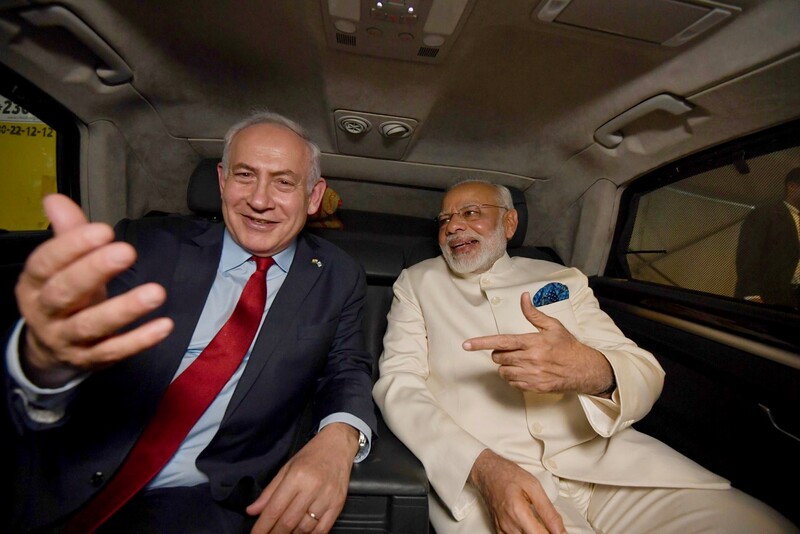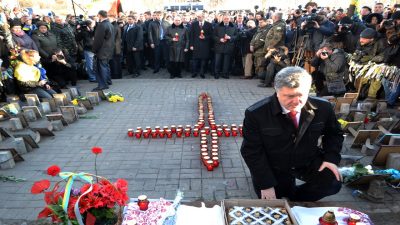American Ex-Paratrooper Joins
Georgian Legion Fighting in Ukraine
KIEV – An American former paratrooper has joined the Ukrainian army’s Georgian National Legion and will take part in active combat missions in the country’s war torn Donbass Region, the group’s commander Mamuka Mamulashvili announced at a press conference Wednesday.
Brian Christopher Boyenger, a retired officer and former sniper from the US Army’s elite 101st Airborne Division, is the first US citizen to formally join the Ukrainian military in an official combat role since hostilities broke out against Russian forces and their separatist proxies in April 2014.
“This is the first incident, that I know of, when a US citizen will be involved in the fighting and represent one of the Ukrainian battalions as a member of the Georgian Legion. We expect more American volunteers to join us. The first group will consist of 10 people and they will take a direct part in the fighting in east Ukraine. They previously served as instructors, but now they will take part in the hostilities,” Mamulashvili said.
Boyenger, a native of South Carolina whose active military service spanned four years from 2006-2010, said he made the decision to join the current conflict out of solidarity with Ukraine, which he cited as a key US ally.
Prior to officially joining the legion, Boyenger spent five months in 2015 as a volunteer instructor for the Ukrainian army, teaching Kiev’s underfunded military essential combat skills.
Boyenger is, in fact, not the first US citizen to take an active combat role in the war. Mark Paslawsky, a 55 year-old West Point graduate and former investment banker from Manhattan, was killed in fighting during the Battle of Ilovaisk in August 2014 while serving as a volunteer in Ukraine’s Donbass Battalion.
Formed shortly after war broke out in Ukraine’s mainly Russian-speaking east, the Georgian National Legion is a unit mainly made up of battle hardened former combat veterans from Georgia’s three post-Soviet wars with Moscow.
Five Georgian citizens have already been killed in the fighting which has claimed up to 10,000 lives over the last 20 months.
Georgia’s Hardened Veteran
Mamulashvili, a broad shouldered man with a commanding presence and cool demeanor, is a four-time veteran of the region’s savage post-Soviet wars. At the tender age of 14, he volunteered to fight in the brutal separatist war raging in Georgia’s Abkhazia region.
Regular Russian military units and mercenaries from the North Caucasus helped Abkhaz rebel forces rout Georgia’s fledging national army in 1992-1993. Mamulashvili was wounded in the fighting and later taken prisoner. He spent three months in a Russian prisoner of war camp, where he endured daily bouts of torture.
“It was a hard and evil war,” he said. “It was the kind of fighting that made you question humanity and why we were in such a terrible mess,” he said in 2015.
Within a year of being released, Mamulashvili was once again locked in combat against Moscow as a volunteer in the gruesome 1994-1996 First Chechen War.
Upon returning from Chechnya, Mamulashvili completed his education in Paris and later served as a senior military advisor to former Georgian president and current governor of Ukraine’s Odessa Region, Mikheil Saakashvili.
He fought again in Tbilisi’s 2008 five-day war against Russia after hostilities broke out over Georgia’s other Moscow-backed breakaway region South Ossetia.
Shortly after Russia invaded and illegally annexed Ukraine’s Crimea Peninsula in March 2014, Mamulashvili and his group of volunteers – many of who were drawn from Georgia’s national mixed-martial arts team – decided to join the fight on Kiev’s side.
The battalion’s members say they see an all-to-familiar scenario in Russia’s policy towards Ukraine. Moscow manipulates a territorial dispute, encourages separatism in the region and carries out a hybrid war against the federal authorities, branding them neo-fascists or anti-Russian.
After two decades of war against his erstwhile enemy, Mamulashvili says he no longer goes into battle with hatred towards Russia or its authoritarian president Vladimir Putin, but with a dedication for being on the right side of history and a love of Ukraine.
Brian Christopher Boyenger, a retired officer and former sniper from the US Army’s elite 101st Airborne Division, is the first US citizen to formally join the Ukrainian military in an official combat role since hostilities broke out against Russian forces and their separatist proxies in April 2014.
“This is the first incident, that I know of, when a US citizen will be involved in the fighting and represent one of the Ukrainian battalions as a member of the Georgian Legion. We expect more American volunteers to join us. The first group will consist of 10 people and they will take a direct part in the fighting in east Ukraine. They previously served as instructors, but now they will take part in the hostilities,” Mamulashvili said.
Boyenger, a native of South Carolina whose active military service spanned four years from 2006-2010, said he made the decision to join the current conflict out of solidarity with Ukraine, which he cited as a key US ally.
Prior to officially joining the legion, Boyenger spent five months in 2015 as a volunteer instructor for the Ukrainian army, teaching Kiev’s underfunded military essential combat skills.
Boyenger is, in fact, not the first US citizen to take an active combat role in the war. Mark Paslawsky, a 55 year-old West Point graduate and former investment banker from Manhattan, was killed in fighting during the Battle of Ilovaisk in August 2014 while serving as a volunteer in Ukraine’s Donbass Battalion.
Formed shortly after war broke out in Ukraine’s mainly Russian-speaking east, the Georgian National Legion is a unit mainly made up of battle hardened former combat veterans from Georgia’s three post-Soviet wars with Moscow.
Five Georgian citizens have already been killed in the fighting which has claimed up to 10,000 lives over the last 20 months.
Georgia’s Hardened Veteran
Mamulashvili, a broad shouldered man with a commanding presence and cool demeanor, is a four-time veteran of the region’s savage post-Soviet wars. At the tender age of 14, he volunteered to fight in the brutal separatist war raging in Georgia’s Abkhazia region.
Regular Russian military units and mercenaries from the North Caucasus helped Abkhaz rebel forces rout Georgia’s fledging national army in 1992-1993. Mamulashvili was wounded in the fighting and later taken prisoner. He spent three months in a Russian prisoner of war camp, where he endured daily bouts of torture.
“It was a hard and evil war,” he said. “It was the kind of fighting that made you question humanity and why we were in such a terrible mess,” he said in 2015.
Within a year of being released, Mamulashvili was once again locked in combat against Moscow as a volunteer in the gruesome 1994-1996 First Chechen War.
Upon returning from Chechnya, Mamulashvili completed his education in Paris and later served as a senior military advisor to former Georgian president and current governor of Ukraine’s Odessa Region, Mikheil Saakashvili.
He fought again in Tbilisi’s 2008 five-day war against Russia after hostilities broke out over Georgia’s other Moscow-backed breakaway region South Ossetia.
Shortly after Russia invaded and illegally annexed Ukraine’s Crimea Peninsula in March 2014, Mamulashvili and his group of volunteers – many of who were drawn from Georgia’s national mixed-martial arts team – decided to join the fight on Kiev’s side.
The battalion’s members say they see an all-to-familiar scenario in Russia’s policy towards Ukraine. Moscow manipulates a territorial dispute, encourages separatism in the region and carries out a hybrid war against the federal authorities, branding them neo-fascists or anti-Russian.
After two decades of war against his erstwhile enemy, Mamulashvili says he no longer goes into battle with hatred towards Russia or its authoritarian president Vladimir Putin, but with a dedication for being on the right side of history and a love of Ukraine.
By Nicholas Waller
26 February 2016 22:14







